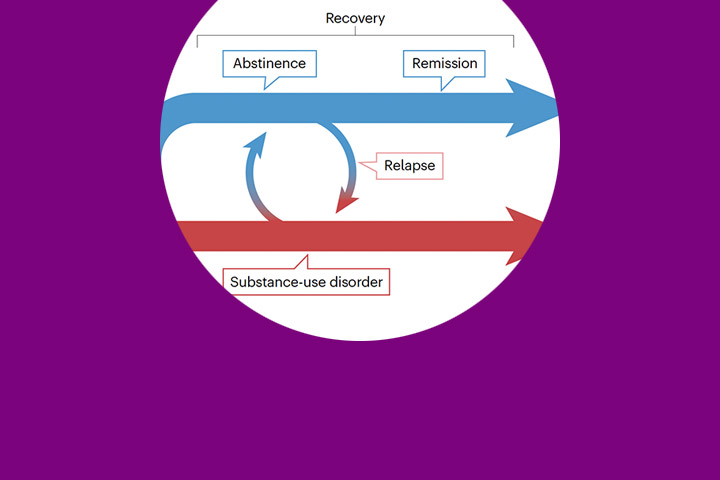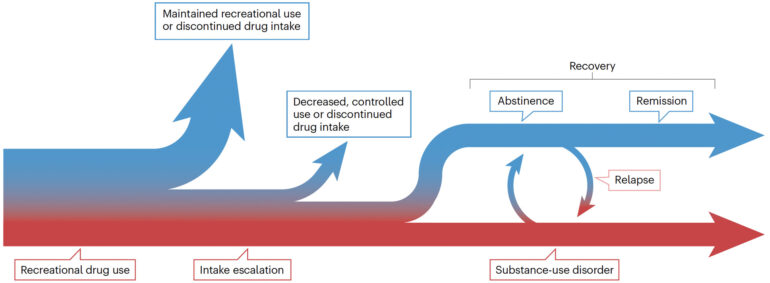
Michel Engeln and Serge Ahmed in Nat. Rev. Neurosci.
Remission from addiction: erasing the wrong circuits or making new ones?
Addiction, or substance use disorder, is characterized by a propensity of people to relapse when they attempt quitting drug. A large body of studies, both in humans and animals, has sought to elucidate the neural changes associated with relapse, with the aim to discover new brain targets for therapeutic interventions. Over the years, this has progressively led to the general expectation in the field that to be effective in promoting remission from addiction, treatments need to reverse or erase drug-induced neurobiological modifications.
Epidemiological studies, however, have repeatedly shown that a substantial proportion of people with substance use disorders does recover, and sometimes without professional help. The factors behind remission are varied, but intense negative events related to drug misuse (health issues, job loss, divorce, etc.) or strong social support (from family, friends, etc.) are often reported to contribute to the initiation of recovery. In that context, simple erasure or reversal of drug-induced alterations is unlikely to be the whole story in explaining recovery and remission from addiction.
With this information in mind, our Perspective article presents, discusses, and evaluates available data on the neurobiology of remission. We first discuss human neuroimaging studies that have provided precious insights into recovery and then highlight mechanisms – such as the reconfiguration of neuronal circuits – identified in animal models of remission induced by negative events or social support. We also determine how basic learning and memory mechanisms further contribute to durable changes that may support remission.
Overall, we propose that events possessing strong personal significance (positive or negative) can induce neurobiological changes, often similar to those induced by drugs, that eventually reconfigure in a new way or outcompete those originated by drugs, thereby precipitating recovery. Thus, rather than aiming to erase all the neural effects of addiction, new treatments should also take advantage of this neurobiological potential to promote recovery and eventually remission

Reference
Remission from addiction: erasing the wrong circuits or making new ones?
Engeln, M., Ahmed, S.H. Nat. Rev. Neurosci. (2024).
https://doi.org/10.1038/s41583-024-00886-y
The article is available here: https://rdcu.be/d3bh6
Mise à jour: 17/01/25
